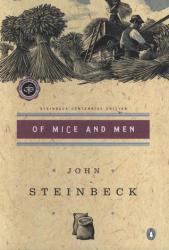
I read this book my Freshman year of high school for English class. I know that Steinbeck is a very famous author, but I just didn’t really care for this book. I thought the story, which is about two men looking for work during the Great Depression is rather boring. I cry while reading sad parts in books all the time, but for some reason the sad ending in Mice and Men just wasn’t as sad as people made it out to be. Overall, I wouldn’t recommend this book, I didn’t like the plot or Steinbeck’s writing style.
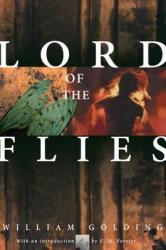
I think the Lord of the Flies was a good book with an interesting storyline. Some of the events in the book took me by surprise. But, some of the book was too predictable for my liking. The characters all had their own stories, emotions, and feelings. It was interesting to see how they interacted with each other and how their relationships played out. The story also had a lot of themes and it was intriguing to see the morals and how they connected to the plot.
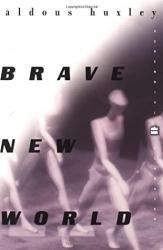
Brave New World is a classic dystopian novel, written in the early 1930s by Aldous Huxley. Set in a society in which humans are manufactured and programmed depending on their assigned social class, it addresses individualism, conformity, and the dangers of complete government control. Citizens in this dystopia frequently take a drug to subdue their emotions, living in a state of ignorance and 'bliss' as they go through the motions unquestioningly. In order to keep the system of manufacturing people running smoothly, certain things are considered taboo--such as literature, religion, and family--while what we typically consider unorthodox is commonplace in this society.
The story follow several central characters who don't completely fit in or believe there could be more to life than what they experience every day. Huxley takes readers to a 'Savage Camp' where John, the protagonist (whose ideals are completely different from everyone else's), is introduced, and the other characters experience an extreme contrast to their advanced and ordered society. Readers experience John's intense internal conflict as he attempts to find his place in the new world into which he is thrust; they also learn more about the ideology of the dystopia, and what goes on behind its 'perfect' facade.
I enjoyed most aspects of Brave New World, and would recommend it to dystopian readers who appreciate a deeper meaning. However, there were some parts of this novel that I found disturbing, as what's considered taboo is the opposite of how we view things in our world. Sometimes I had trouble connecting with the story emotionally, and I would've liked more specifics about how the dystopia came to be. But looking past the negatives, the themes Huxley brings up are very important, and even pertinent to society today. His characters have depth, the underlying themes make readers think, and overall it is an interesting concept of a future world with complete dictatorship. Brave New World is a classic that I believe everyone should read.
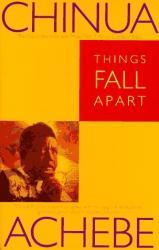
Things Fall Apart by Chinua Achebe is an amazing description of pre-colonial African culture as well as a detailed description of the initial consequences and longer-term impacts of colonization. It follows Okonkwo, a man who was the most powerful member of his village up until the arrival of the colonists. Okonkwo is the manliest of men and believes he must show no weakness. Okonkwo is a representation of the African culture as the colonists arrive. His personal feelings and reactions are very similar to those of all Africans during this strange period. I would recommend this book to anyone who wants to learn more about African culture, but I think everyone should try it because it is an important piece of history, telling the story of a people trying to survive against the colonial onslaught through the story of a man trying to find his way in the world.
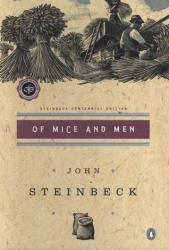
Of Mice and Men by John Steinbeck is a tale of grief and hope in the midst of the great depression. It begins with two men, George and Lennie, who are searching for work on a farm. George is witty and small while Lennie is mentally handicapped but enormous and physically strong. Both George and Lennie, as well as the other workers they meet, begin to represent the nation as a whole during the depression. Showing the struggles of every person in those horrible times. I think the novel is a sad story but it is a good representation of the personal and societal impacts of the depression and I think everybody should read it at least once.
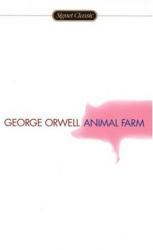
Animal Farm by George Orwell was published in 1945 16 years after Joseph Stalin came to power in the Soviet Union. The book chronicles the formation of the Soviet Union as well as major historical soviet events. The on twist, all Soviet leaders and classes of citizens are represented by farm animals! I love this book because the reader must infer who each animal represents. Once you have that figured out, there are many events in the book that can be tied to real-world events! I enjoyed this book a great deal and I would recommend it to anyone who has a desire to learn about Soviet history or enjoys books that make the reader piece together missing story elements.
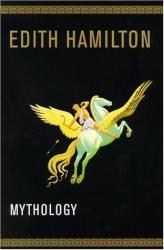
Edith Hamilton's collection of Greek and Roman stories covers the gods, creation, and earliest heroes; stories of love and adventure, the great heroes before the Trojan War, the heroes of the Trojan War, the great families of Mythology, the 'less important' myths, and the mythology of the Norsemen. There are over 100 Greek/Roman/Norse stories, and a family tree and glossary of all the gods and goddesses included. A bonus was the illustrations which were really detailed. I read this book because I wanted an introduction to the Greek gods and goddesses before reading the PercyJackson and Olympians series, and I think it's a great book to gain somefamiliarity with the mythological characters.
My favorite short stories were: The Underworld, Cupid and Psyche, Pyramus and Thisbe, Perseus, Theseus, Hercules, and Antigone.
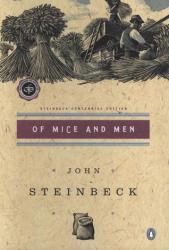
George and Lennie are two laborers searching for work in California. While George is small and quick, Lennie is a man of tremendous size and has the mind of a young child. Despite their differences, they have formed a "family", clinging to their dream of owning an acre of land and producing their own produce. When they find a job at a ranch in the Salinas Valley, fulfilling their dream seems to be within their grasp, but conflict arises when Lennie begins a flirtatious relationship with the ranch owner's wife, and even George can't protect him from that.
I liked this book! Lennie and George's relationship is heartwarming, and it shows that having close friends can make even the hardest life bearable. My favorite characters were Crooks and Lennie. Crooks, who lives by himself because he is the only black man on the ranch, shows how discrimination affects mental well-being. Like Lennie, Crooks has been outcasted and looked down upon by society for something he can't control, and I liked how Steinbeck brought two very different characters together by sharing their shared loneliness. George is a complicated character because, at the end of the book, he does what he believes is 'best for Lennie' but it begs the question of how far a friend should go if it's in 'your best interest'. I watched the movie as well, as it was also really good!
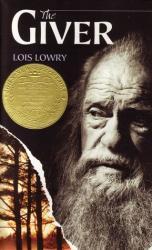
Jonas lives in a society where everyone is treated equally and given the same opportunity. Except for the Committee of Elders and special people lie The Giver, no one has 'special privileges'. Jonas, like everyone in his society, has a sister and two parents who were specifically handpicked to be his 'perfect parents'. In Jonas' society, no one sees color or has memories of the 'time before' beside The Giver. Eventually, Jonas is picked as the next Giver and begins his training once he officially becomes a teenager. During his training, Jonas experiences pain and happiness for the first time, and he's granted the ability to see color. After The Giver dies and Jonas becomes the new Giver, he finds it difficult to cope with the burden of enduring all the pain and suffering from the past and decides to run away.
I liked this dystopian novel. Jonas' society seems perfect on the outside, but once I met The Giver, I realized that people like Jonas could live perfect lives at the detriment of people like the Giver and Birthmothers who are isolated from the rest of society and treated based on what they can provide instead of their actual character. At first, I didn't like Jonas because he didn't think for himself and he always followed the rules. By the end of the book, after he's received all The Giver's memories, he starts to stand up for what he believes in. He even tries to save his family but sees that they're too brainwashed by the Committee of Elders.
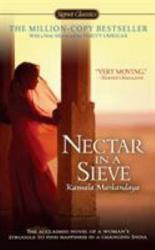
This novel follows the life of a young Indian girl named Rukmani, who is married off at the age of twelve. She marries a poor farmer, Nathan: because she has three older sisters and is not as "desirable" by Indian standards, her parents cannot find a better suiter besides a poor farmer. Throughout their marriage, Rukmani and Nathan struggle with poverty, and misfortune. In addition, British colonizers have set up posts in their town, further destroying Rukmani and her family's sense of community and opportunity.
My favorite character is Rukmani because of her complexity. She is a flawed and interesting character because, on one hand, she breaks the gender norms of her culture and often finds ways to support the family even when Nathan can. However, I will argue that Rukmani is complacent in her poverty and accepts things as the way they are knowing she could do better. I also really liked how this book touched on intergenerational conflicts. Rukmani often finds herself detached from her children because they're growing up in westernized society. Nathan is my least favorite character because he's just...there. Overall, this was a good book because it exposed me to a different culture.
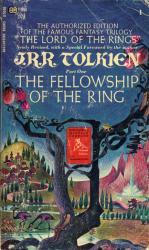
The Fellowship of the Ring is about a company of people of different sizes, shapes, and cultures, living in an imaginary world: Middle Earth. These people come together when Bilbo Baggins, a hobbit, runs away from his house after his 111th birthday, but he leaves behind the Ring of Power. Hobbits are short people who live in Hobbiton, a place in Middle Earth. The Ring of Power is a ring that one of the antagonists, Sauron, created for the destruction of Middle Earth.
The company now comes together to destroy this Ring, but it can’t be destroyed with ordinary means, like stomping on it or casting it into fire. The ring can only be destroyed if it is thrown into the place it was created at, Mount Doom, a volcano in Sauron's evil layer known as Mordor. The company knows that Sauron will search all of Middle Earth for the Ring, so the company decides to take it to Mount Doom.
At a petrifying moment, the company goes over a mountain range, but it is too cold for people to survive, so they head to the Mines of Moria, an underground series of tunnels. Everything was going fine until a person accidentally made noise by throwing something down a well. Then, they have to run to the exit because they awakened their evil pursuers, like the Balrog of Moria, a giant humanoid creature with a whip. The Balrog drags a member of the company down a cliff, and they fall for over 8 whole days.
This book is full of fantasies, and it really holds a grip and is hard to put down, and for that reason, I'm going to go with 4/5 stars for The Fellowship of the Ring.
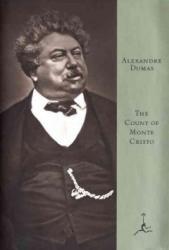
The Count of Monte Cristo by Alexandre Dumas is an amazing novel about betrayal and revenge. It follows the life of Edmond Dantès, a young first officer of a shipping company in Marseille, France, as he draws into port, ready to greet his enchanting fiancée Mercedes. However, Dantès’ happiness is short lived as he is betrayed by his closest friends and his life is upended for several decades. When Edmond finally returns as the Count of Monte Cristo, he is determined and set on vengeance, and he has the money and intelligence to annihilate those who dared to betray him. The Count of Monte Cristo is without a doubt my favorite book as it vividly describes the manipulations of the count and how his enemies struggle to break free of his grasp. I would recommend this book to everyone, especially those who enjoy complex stories where not all actions of the characters are written on the page but must be deduced by the reader.
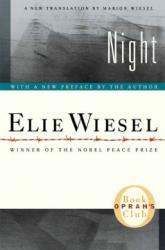
I had to read this book in English class Freshman year. I honestly wasn't expecting to like it as much as I did. It's a true story called "Night" written first hand by Elie Wiesel about the Holocaust. It's about a young boy and his family that got sent to Auschwitz and Buchenwald concentration camps. This book is extremely well written, and is a really sad story. There was one part, I won't spoil it, but I couldn't stop crying. "Night" really gives you a look at what it would have been like to be in Elie's shoes. Overall, of course this is quite a sad book, but I would highly highly recommend!!

A Wrinkle in Time is unlike any Science Fiction novel I have ever read. It is exciting and scientific and even a little romantic like every other science fiction novel, but it grapples with other ideas like how one thing (yet to be revealed) helps to conquer the darkness inside us and all around. It follows Margaret (Meg) Murry in the search for her missing father but at the same time follows a search in understanding herself. She wants more than anything to find her father because he was the one who made her feel like herself and now that he is gone, she feels lost. Her genius younger brother Charles Wallace is a major player in Meg's journey to find herself and in the end is what will trigger the one thing she has that the darkness does not.
I first read this book in third grade as required reading, but since then I have probably read it over ten times. It is one of those books that you get something new out of every time you read it. I have also never read such a creative book. Madeleine L'Engle makes it interesting and unpredictable while at the same time tying in internal struggles. Everyone can relate to Meg and will learn from her struggles by reading this book.
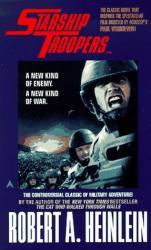
Starship Troopers exemplifies the signature writing style of Heinlein: an outrageous setting that still manages to capture familiar aspects of everyday life. I marveled at the intricate universe Heinlein crafts. He describes every aspect of political relations with alien species and the intricacies of a military that ranges across the stars. The book follows a boy named Juan Rico as he comes of age and joins the infantry. Heinlein describes every aspect of Juan’s life in basic training and the great battles of his career like an ancient epic; sparing no detail and giving elaborate descriptions of the enemies of humanity and the battles in which they were defeated. Starship Troopers is the perfect science fiction novel for someone who is looking for heaps of action combined with drops of philosophy and social commentary, all brought together into one spectacular and dazzling universe.
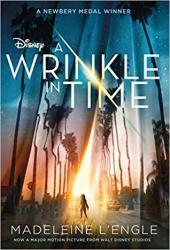
A Wrinkle in Time is an amazing book that brings fantasy mechanics into science, and makes it as real as possible. It starts off with Meg, a brilliant child in a family of brilliant people, who is struggling with grades. She blames it on herself, but she goes on and explains that it's because her father suddenly left, upsetting her natural world. A Wrinkle in Time brings together amazing description techniques, and interesting science mechanics, with quite a bit of humor. Overall, this book is one of my favorites of all time.
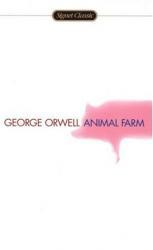
Animal Farm by George Orwell is a chilling tale of animals' uprising against humans to form an idyllic society. Without the rule of humans, animals expect equality, prosperity, and utopia. Over the course of this fable, however, the characters slowly devolve into new forms of oppression, greed, and violence against one another. Each chapter is more suspenseful than the last. The book is not entirely scary, but unsettling more than anything else. Orwell writes characters who are worth caring about, and antagonists that are easy to dislike.
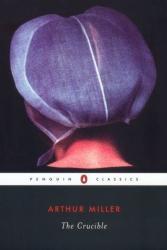
The Crucible is an allusion to the Salem Witch Trails of 1692. The main character, John Proctor, is a well-respected farmer in the small town of Salem, Massachusetts. When the first rumors that there are witches in Salem start stirring, Proctor pays little attention to them: he doesn't particularly believe in witchcraft and believes the townspeople are simply being hysterical. However, when his wife is accused of witchcraft, John has to put aside his personal feelings and find a way to save his wife and friends from hanging.
I hated the ending, but it made the play so much better. John develops significantly as a character. In the beginning, he only cared about protecting his reputation and hiding his affair, but in the final act, John became a martyr for the people of Salem. He's my favorite character in the play, and the movie is just as good!
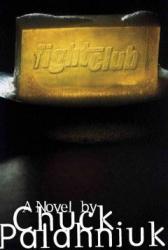
If you like the movie Fight Club, or are just looking for a really good book, this one is awesome. I remember after watching the movie it said that it was based upon this novel. And I had to read it! This story is about a man who's bored with himself and his life. He meets a guy named Tyler Durden, and pretty soon things get out of control. Though there is a "fight club," this story is a lot more than just fighting. And, in my opinion, this book has the best twist ending ever. Chuck Palahniuk is a really good author, and this book is a quick read. Overall, I've read this book multiple times and would highly recommend! I would say that it's not for little kids, as the movie Fight Club is rated R.
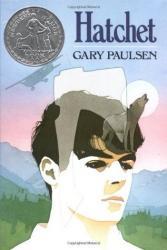
A 13-year-old boy, Brian Robeson, traveled in a small bush plane to visit his dad in Canada. Mid-flight the pilot has trouble breathing and Brian finds himself trying to fly the plane so they don't crash. The plane eventually runs out of fuel and makes a crash landing into a lake. While swimming out of the lake, Brian remembers the hatchet his mother gave him which becomes his one and only survival tool. When Brian realizes he is stranded in the woods, he has to find ways to survive in this new environment. Brian first finds a patch of berries for a source of food. He then sets out to build a shelter for safety and fire for warmth. After facing many challenges Brian and missing warm meals and his bed, Brian must continue to survive by adapting to his situation.
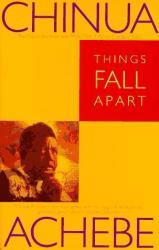
Things Fall Apart is about a Nigerian man, Okonkwo, who watches as his village is destroyed by European missionaries. Once a feared and respected man in his village of Umuofia, Okonkwo is reduced to eventually taking the orders of white men. Okonkwo is a hard and emotionless man who believes that anything that is not masculine is weak and therefore unworthy. When missionaries come to Umuofia, Okonkwo urges his fellow villagers to resist the attempts to diminish their culture and replace their government, but he's met with little support. Eventually, Okonkwo is banned, and when he returns, his village has completely changed.
I liked Things Fall Apart because it's a great book that challenged the idea of African savagery and portrays African culture, specifically Nigerian culture, as complex and intricate, and not the 'uncivilized' society many people view Africans as today. Okonkwo is an interesting character because his unwillingness to adapt to the new change represents an internal struggle many pre-colonized Africans faced in the wake of colonization. The ending is symbolic because it represents the ultimate death of culture as a result of European exploration.
Overall, the novel provides a beautiful insight into another culture often ignored in mainstream media.
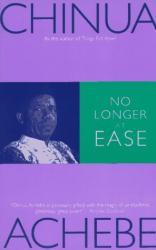
No Longer at Ease is the second installment in the African trilogy series. It is preceded by Things Fall Apart and follows the life of Obi, Okonkwo's grandson. Obi leaves his village in Nigeria to pursue an education in Britain where he meets Clara and falls in love with her. He returns to Nigeria and gets a job in civil service with the help of the board of elders. Obi is conflicted between his African culture and Western lifestyle, and heavy in debt, he takes a bribe.
Just like his grandfather, Obi is strong-minded and stubborn. He intends on marrying Clara although she is an osu, and begins taking bribes when he cannot pay his debts. He questions Nigerian traditions, and often compares Africa to Britain, ultimately positioning him in a place where he finds it nearly impossible to balance both cultures. However stubborn and sometimes reckless Obi is, he's a symbol of generational growth: unlike his grandfather and father, Obi ultimately understood that one culture was not better than the other, and change was imminent. Okonkwo, Nwoye, and Obi symbolize the different industrial stages of Nigeria and the social turmoil that followed, and they show the theme of western versus eastern culture clashes.
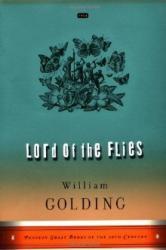
I liked Lord of the Flies for its realism and its detail. The concept of boys stranded on an island was interesting to read, while the realism of the boys’ reactions kept it alive. The detail was fabulous, the interactions well thought out, and the diversity was well done. I loved this book, not just for reading for my writing class, but outside of school as well.
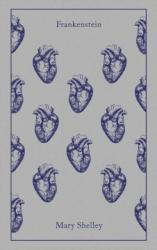
Frankenstein, or, the Modern Prometheus is a great gothic read. Like any other gothic novel, it is dark and mysterious, with elements of horror in it. While it had a rocky start for me, I soon got lost in the characters, with their wants and needs. The detail was amazing, while the wording was, em, very 17th century, but that makes the book no worse. All around, this is a riveting book that will capture your attention immediately.
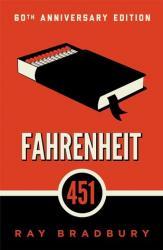
Fahrenheit 451 is a dystopian novel about society if books were
banned. Firemen burn books and one of the firemen is Guy Montag. He's the
main character but eventually he goes against the government and reads books.
His wife Mildred reports the authorities about his possession of books and he
is forced to burn his house, escape the city, and create a new life. After
being on the run from the government, he goes down a river to an unknown area
where he finds other people who read books and he joins their group.
Honestly, I thought it was an amazing book. I love how it puts the importance
of books into perspective and I think everyone should read it. I highly
recommend Fahrenheit 451.
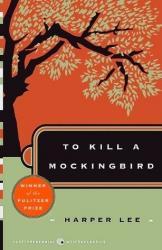
The amount of description in To Kill a Mockingbird by Harper Lee is
amazing. Like, Sherlock Holmes good. The characters are well mapped out, the
interactions felt thought through, and the relationships are believable. I
personally didn’t get all the detail the first read through, just from
enjoying the characters too much. The history is realistic, considering the
time period and how poorly the blacks were treated. All things considered,
this is an engaging read with some actual history.
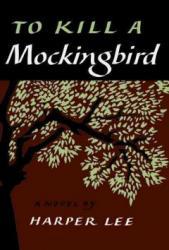
"To Kill a Mockingbird" by Harper Lee creates a creative look on segregation in life in the 1930's. As the story goes along, Scout and her brother Jem experience many changes throughout the summer of 1935. Their father, Atticus Finch, defends a black man after the man was accused of an unsolved crime. The event creates much thought and debate on the subject of segregation. The book has many great turns and the potential of characters was used to a full extent. I highly recommend the read for it will give readers an excellent idea of how life was those many years ago.

Brave New World, written by Aldous Huxley, is a personal interpretation of society’s attitude towards technology. It takes place in a future, either dystopian or utopian, where technology reigns supreme, and humans are created in a lab. It offers commentary on where humanity’s values are placed, and where they should be placed. The characters have to choose whether or not conformity is the best option, and whether numbing the pain is better than understanding the suffering. Written in the 1930s, Huxley has a surprisingly modern style and understanding, and knowing that he was unsure of the future makes it an even more exciting book.
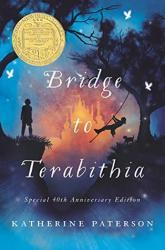
This book is about two unlikely friends who create an imaginary world with many kinds of animals and beasts. Jess Aarons and Leslie Burke become friends when Leslie moves and becomes Jess’s neighbor. But they really get to know each other when Leslie is the only girl to beat Jess in a running race.
One day, Jess and Leslie use a hanging rope to swing over a little river that is nearby, and that’s when they start to rule, as king and queen, the imaginary Terabithia.
There, the two friends have adventures as they try to rule over their subjects, and keep peace and order in Terabithia. Some of these subjects include hairy vultures, squogres, and other spirits, both good and bad. Squogres are massive squirrel-like creatures who are constantly growling, and they wear strange golden helmets with a spike on top, like a Triceratops.
With this book keeping you imaginative, with some sad and happy parts, I'm going to go with 3/5 stars for The Bridge to Terabithia.
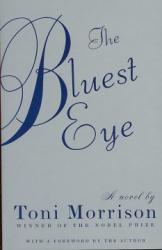
The Bluest Eye is about a young African-American girl named Pecola living in 1940's Ohio. Pecola lives with her brother and abusive parents who constantly tell her she is ugly because of her dark skin and kinky hair. On top of that, the children at her school bully her for the fact that her father is an alcoholic. All her life, Pecola has wanted blue eyes to feel pretty. Her only friends, Freida and Claudia try to defend her against the colorism in their community, but Pecola is unable to embrace her features and becomes obsessive over her desire for blue eyes.
One of the reasons I read this book is because of Morrison's writing style and her thematic elements. The book is very intellectually stimulating and gave me better insight into colorism and how it is still largely prevalent today in the African-American community. I really liked how Morrison used a young girl as a main character to show how these feelings of low-esteem and poor body image are started at a young age, and how the people around us influence our thoughts and feelings.
There are a lot of complex characters and you get to hear each of their stories about why they're the way they are. Claudia is my favorite character because she represents women and girls who challenge our ideas of beauty. The ending was sad, but it really brought light to how damaging our obsession with beauty is.